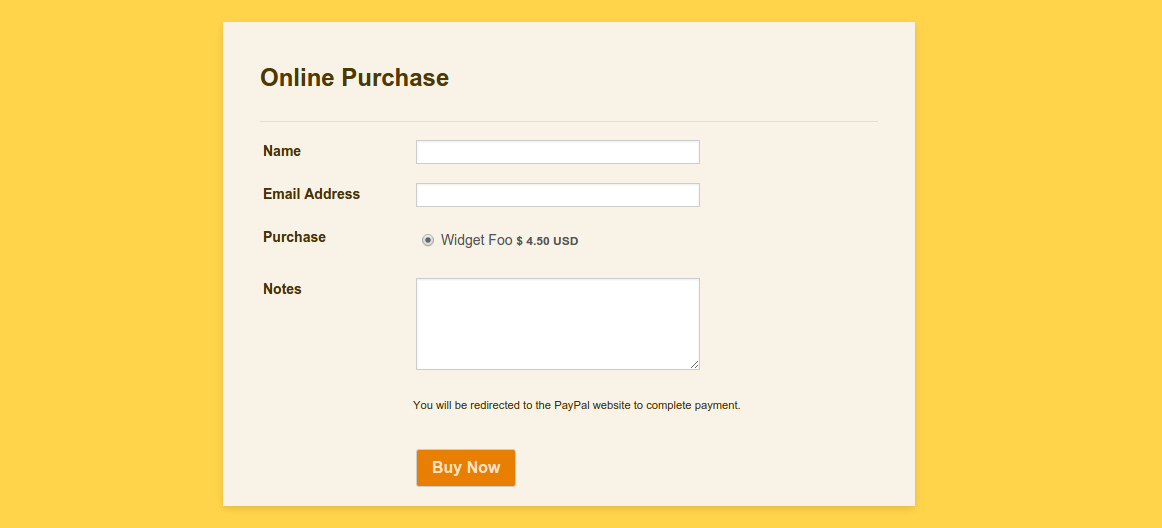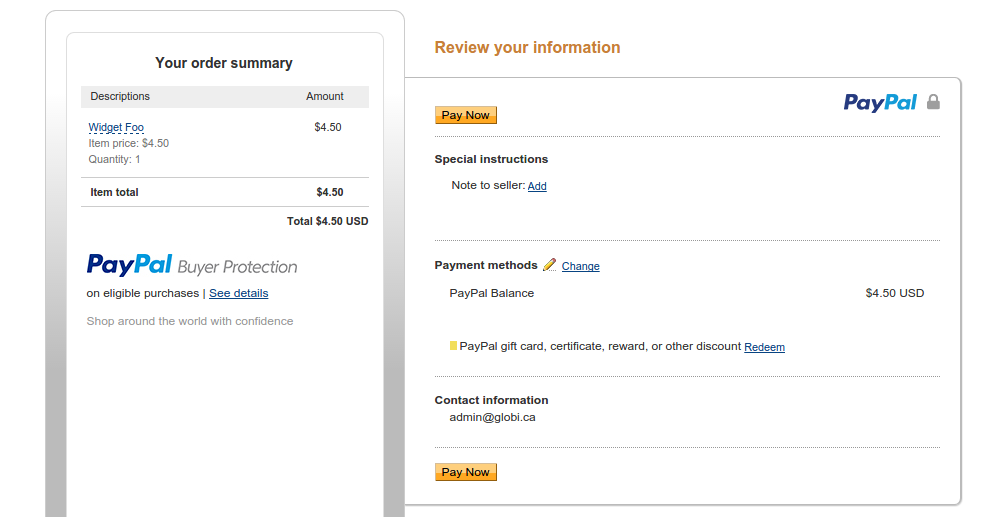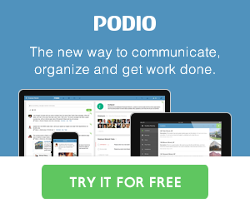Implementing a Payment Form in Podio using GlobiFlow and Jotform
Posted: 2015-04-25
Although Podio's native webforms are great, they have limitations. You can only have one per app, and you cannot do any payment processing, etc. There are other services like JotForm, which let you build more sophisticated forms with logic and payment processing. You can hook up such other forms using GlobiFlow's Webhook feature which allows you to capture external webhook events and perform actions in Podio.
The Form
For this example, we're going to set up a simple payment form using JotForm (www.jotform.com). The "Purchase" block in our example here uses a PayPal block in JotForm.

The Podio App
In Podio we will need an app to capture these form submissions. This app can be quite simple and needs the fields we want to store from each purchase.

The Webhook Flow
Next, we need to create a new Flow in GlobiFlow in the Webhooks area:


In the new WebHook Flow, you will see the unique catch URL for the hook.

Since there have been no Posts from this form yet, there is no data. We first need to hook up the WebHook in JotForm (under the "Integrations" toolbar button).

Next, we'll need to push through a sample purchase so that our WebHook in GlobiFlow can collect data and determine which fields we have to work with.



Now that we've made a purchase, JotForm would have sent the form to our WebHook endpoint. In GlobiFlow, click on the "Refresh" link by the WebHook URL, and you'll now see the data that came through from our test purchase.

These variables are now available as tokens, so we can build our flow to create a new purchase item.

And that's it. Now every time someone makes a purchase from your JotForm payment form, it will create a new item in your Podio Purchases App.
 by
Andreas Huttenrauch
by
Andreas HuttenrauchOwner of Globi Web Solutions, and Podio Fanatic.

